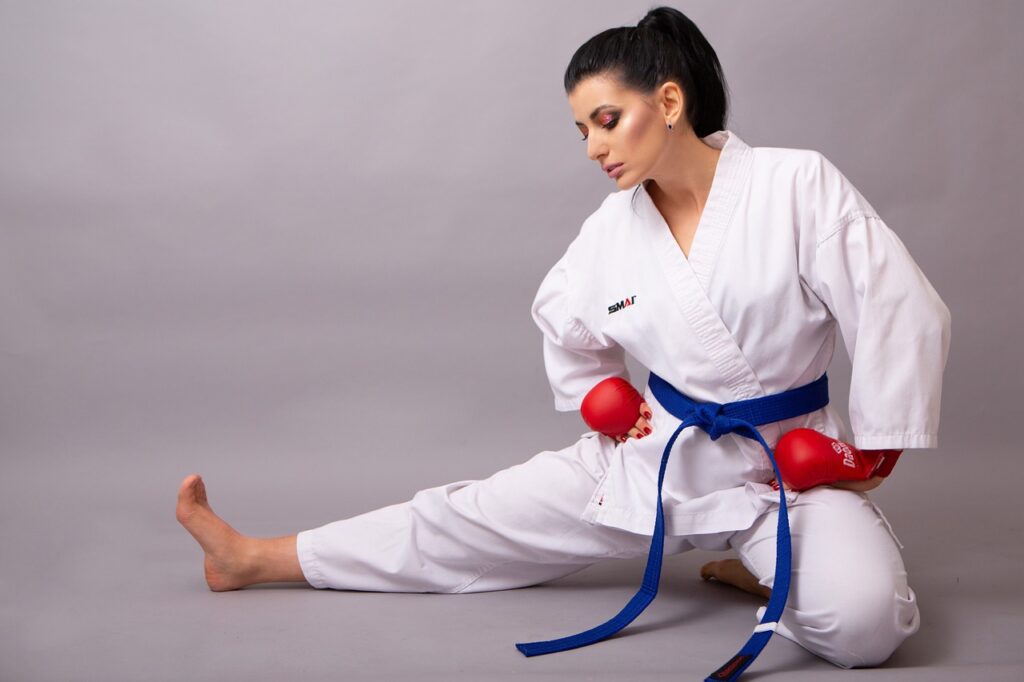In the fast-paced world of mixed martial arts (MMA), where split-second decisions can make or break a fighter’s career, the importance of developing a superior fight IQ cannot be overstated. A fighter’s strength and skill can only take them so far; it is their ability to read and react to their opponent’s moves, capitalize on weaknesses, and strategically plan their own attacks that sets them apart. This article will explore the key factors that contribute to the acquisition of a superior fight IQ in MMA, providing invaluable insights for fighters looking to up their game and dominate the octagon.

Understanding Fight IQ
Definition of Fight IQ
Fight IQ, also known as fight intelligence, refers to the ability of a mixed martial artist to make quick and effective decisions during a fight. It goes beyond physical prowess and technical skills and encompasses a fighter’s understanding of the game, opponent, and strategies. Fight IQ is about being able to read the fight, analyze the opponent, and make educated decisions to gain an advantage.
Importance of Fight IQ in MMA
Fight IQ is an essential aspect of being successful in MMA. It allows fighters to anticipate and counter their opponent’s moves, identify weaknesses to exploit, and strategically make decisions that lead to victory. In a sport as dynamic and fast-paced as MMA, having a high fight IQ can mean the difference between winning and losing. It enables fighters to stay one step ahead, adapt to changing situations, and maximize their chances of success.
Factors that Influence Fight IQ
Several factors contribute to the development of a fighter’s fight IQ. Experience is crucial, as it provides opportunities to learn and grow from past fights. Training under skilled coaches and mentors who can impart knowledge and understanding of different fighting styles also plays a significant role. Additionally, having a deep understanding of technical skills, physical conditioning, mental toughness, and strategic decision-making are key components that influence a fighter’s fight IQ.
Analyzing Opponents
Studying Opponent’s Fighting Style
To develop a superior fight IQ, it is crucial to study and analyze the fighting style of your opponents. This involves watching their previous fights, studying their techniques, and understanding their strengths and weaknesses. By gaining insight into their style, you can identify patterns, tendencies, and potential openings that can be exploited during a fight.
Identifying Strengths and Weaknesses
In addition to studying the opponent’s fighting style, it is important to identify their strengths and weaknesses. This can be done by analyzing their past performances, evaluating their techniques, and paying attention to their reactions in certain situations. By understanding their strengths, you can anticipate their attacks, while identifying weaknesses allows you to capitalize on them and gain an upper hand in the fight.
Strategies to Exploit Weaknesses
Once you have identified the weaknesses of your opponent, it is crucial to develop strategies to exploit them. This may involve adjusting your game plan, focusing on specific techniques that can exploit those weaknesses, or using effective counterattacks. Exploiting weaknesses can disrupt your opponent’s rhythm, build confidence in your own abilities, and ultimately lead to victory.
Effective Game Planning
Developing a Game Plan
A crucial element in developing a superior fight IQ is creating a well-thought-out game plan. This involves strategizing and preparing specific techniques and approaches that can be employed during a fight. By studying the opponent’s strengths and weaknesses, as well as understanding their fighting style, you can devise a game plan that capitalizes on your strengths and counters your opponent’s tactics.
Adjusting Strategies During a Fight
While having a game plan is essential, it is equally important to be adaptable and adjust your strategies based on the flow of the fight. MMA is a dynamic sport, and circumstances can change rapidly. A superior fight IQ allows you to identify when a strategy is not working and make the necessary adjustments to gain an advantage. This may involve changing techniques, varying the pace, or altering the overall approach to outsmart your opponent.
Adapting to Changes in Opponent’s Game Plan
Just as you adjust your strategies during a fight, it is crucial to be aware of and adapt to any changes in your opponent’s game plan. An opponent may alter their approach or tactics in an attempt to counter your strengths. A high fight IQ enables you to quickly identify these changes and develop effective countermeasures. By staying one step ahead and adapting to your opponent’s adjustments, you maintain the advantage and increase your chances of success.
Mental Preparedness
Developing Mental Toughness
Mental toughness is a vital aspect of fight IQ. It involves developing resilience, focus, and the ability to perform under pressure. Building mental toughness requires discipline, mental exercises, and a positive mindset. By training your mind to stay calm and focused, you can make clear decisions in the heat of the battle, withstand adversity, and maintain a competitive edge.
Controlling Emotions
Emotions can greatly impact a fighter’s performance. It is important to develop emotional control to prevent impulsive decisions and maintain a clear mind during a fight. Control over emotions allows you to react strategically and avoid making mistakes driven by frustration or anger. Developing emotional intelligence and practicing techniques such as deep breathing and visualization can aid in keeping emotions in check.
Maintaining Focus During a Fight
Maintaining focus is crucial to maximize your fight IQ. It is easy to get overwhelmed or distracted during a fight, especially when facing a formidable opponent. By remaining focused, you can effectively read your opponent, anticipate their moves, and react accordingly. Mental exercises such as mindfulness and visualization techniques can help improve focus and concentration, allowing you to stay in the moment and execute your strategies effectively.

Physical Conditioning
Building Endurance and Stamina
Physical conditioning is a fundamental aspect of fight IQ. Building endurance and stamina allows fighters to maintain a high level of performance throughout the fight. Cardiovascular exercises, such as running and cycling, help improve overall endurance. High-intensity interval training (HIIT) is also beneficial in simulating the intensity of a fight and improving stamina. By having excellent physical condition, fighters can execute their techniques with precision and outlast their opponents.
Improving Speed and Agility
Having speed and agility gives a fighter a significant advantage in MMA. Quick movements and agility enable fighters to evade attacks, initiate effective strikes, and quickly transition between techniques. Exercises such as ladder drills, cone drills, and plyometrics can improve speed and agility. By enhancing these physical attributes, fighters can react faster, create openings, and maximize their fight IQ.
Strength and Conditioning Training
Strength and conditioning training go hand in hand with fight IQ. By developing strength, fighters can execute techniques with more power, control, and efficiency. This, in turn, enhances their ability to exploit weaknesses and dominate opponents. Weightlifting, bodyweight exercises, and resistance training are effective methods for building strength. A balanced strength and conditioning regimen not only improves physical performance but also increases a fighter’s confidence and fight IQ.
Technical Skills
Mastering Fundamental Techniques
Technical skills are the building blocks of fight IQ. Mastery of fundamental techniques provides a solid foundation that allows fighters to execute moves efficiently and react instinctively. Practicing basic strikes, grappling techniques, and defensive maneuvers extensively helps develop muscle memory and enhance fight IQ. By mastering the fundamentals, fighters can focus on implementing strategies, adapting to situations, and making split-second decisions.
Expanding Arsenal of Moves
While mastering the fundamentals is crucial, expanding one’s arsenal of moves is equally important. By learning additional techniques, fighters can surprise their opponents, create unpredictability, and exploit openings. This includes developing proficiency in different striking styles, various takedowns, and submission techniques. By continuously expanding and refining their skill set, fighters can adapt to different opponents’ styles, exploit weaknesses, and maintain a high fight IQ.
Developing Effective Counterattacks
Being able to effectively counter an opponent’s attacks is an essential aspect of fight IQ. By studying an opponent’s patterns and movements, fighters can anticipate strikes or takedowns and develop counterattacks to neutralize their opponent’s offense. This requires timing, precision, and situational awareness. By mastering counterattacking techniques, fighters can turn their opponent’s aggression into an opportunity to gain the upper hand and secure victory.

Strategic Decision Making
Knowing When to Attack and When to Defend
Strategic decision-making involves understanding when to attack and when to defend. Fight IQ enables fighters to recognize opportunities for offense while also understanding the importance of defense. Consistently pressing forward with attacks can leave openings for opponents to counter, while being overly defensive can lead to missed opportunities. A high fight IQ allows fighters to gauge when to be aggressive and when to be cautious, maximizing their chances of success.
Implementing Effective Fight Strategies
Developing and implementing effective fight strategies is a key aspect of fight IQ. It involves analyzing an opponent’s weaknesses and tailoring techniques and approaches to exploit those weaknesses. This may include focusing on specific strikes, grappling techniques, or overall game plans that nullify an opponent’s strengths. By implementing well-thought-out strategies, fighters can control the pace of the fight, dictate the engagement, and increase their chances of victory.
Capitalizing on Opportunities
A high fight IQ allows fighters to recognize and capitalize on opportunities during a fight. This may occur when an opponent leaves themselves vulnerable, makes a mistake, or shows signs of fatigue. By identifying these openings, fighters can launch powerful attacks, secure dominant positions, or go for submissions. By seizing these opportunities, fighters can gain momentum, tilt the fight in their favor, and potentially finish the match.
Fight Intelligence
Developing Fight Awareness
Fight awareness is a crucial component of fight IQ. It involves being fully present and attuned to the fight, the opponent’s movements, and the overall dynamics of the bout. Developing fight awareness requires practice, focus, and experience. By sharpening this skill, fighters can anticipate an opponent’s next move, react instinctively, and make informed decisions that give them an edge in the fight.
Reading and Reacting to Opponent’s Moves
Being able to read an opponent’s moves is a key aspect of fight IQ. By closely observing their body language, footwork, and strikes, fighters can predict their opponent’s actions. This allows them to react accordingly, either by evading, countering, or initiating their own offense. By effectively reading and reacting to an opponent’s moves, fighters can stay ahead, control the fight, and gain the upper hand.
Anticipating and Countering Attacks
An essential element of fight IQ is the ability to anticipate and counter an opponent’s attacks. By studying an opponent’s fighting style and patterns, fighters can recognize the setups and cues that precede particular strikes or takedowns. This enables them to prepare countermeasures in advance, either by evading, blocking, or countering with their own techniques. By effectively countering attacks, fighters can neutralize their opponent’s offense and create opportunities for success.
Learning from Mistakes
Analyzing Past Fights
To further develop fight IQ, it is crucial to analyze past fights and identify areas for improvement. By reviewing footage of fights, fighters can recognize mistakes, weaknesses, and missed opportunities. This analysis allows them to understand their tendencies, refine their strategies, and make adjustments for future fights. By learning from their past performances, fighters can continuously evolve and refine their fight IQ.
Identifying and Correcting Errors
Examining past fights helps in identifying errors and weaknesses that need to be addressed. This may include technical errors, mental lapses, or strategic shortcomings. Once identified, fighters can work with their coaches and mentors to develop targeted training sessions that focus on correcting these errors. By continuously honing their skills and addressing weaknesses, fighters can elevate their fight IQ and enhance their overall performance.
Implementing Lessons Learned
Learning from mistakes is crucial, but it is equally important to implement those lessons in future fights. Implementing lessons learned allows fighters to grow, adapt, and refine their fight IQ. By actively applying the knowledge and insights gained from analyzing past fights, fighters can develop strategies and approaches that maximize their strengths, minimize their weaknesses, and ultimately lead to improved performance.
Continuous Learning and Improvement
Working with Coaches and Mentors
Fighters seeking to develop superior fight IQ should actively seek guidance and work with experienced coaches and mentors. Coaches play a vital role in providing technical expertise, strategic insights, and mental support. They can help identify areas for improvement, develop targeted training plans, and provide feedback on performance. By collaborating with knowledgeable and experienced individuals, fighters can accelerate their growth and continuously improve their fight IQ.
Studying Other Fighters
To expand their understanding and fight IQ, fighters should study other fighters in the MMA world. This includes watching and analyzing fights of both current and past champions. By observing different fighting styles, techniques, and strategies, fighters can gain valuable insights that can be incorporated into their own game. Studying successful fighters allows for the identification of effective techniques, the adoption of winning mentalities, and the refinement of overall fight IQ.
Participating in Regular Training and Sparring
Consistent training and sparring sessions are vital for developing a superior fight IQ. Regular training allows fighters to refine their techniques, improve physical conditioning, and test their skills. Sparring, in particular, provides a realistic environment to apply learned strategies, adapt to opponents’ movements, and practice decision-making skills in real-time. By actively participating in focused training and challenging sparring sessions, fighters can continuously learn and improve their fight IQ.
In conclusion, developing superior fight IQ in MMA encompasses understanding the game, analyzing opponents, effective game planning, mental preparedness, physical conditioning, technical skills, strategic decision-making, fight intelligence, learning from mistakes, and continuous learning and improvement. By investing time and effort into developing each of these areas, fighters can enhance their fight IQ, increase their chances of success, and reach their full potential in the world of mixed martial arts.

